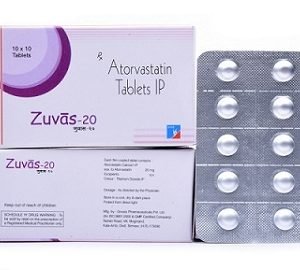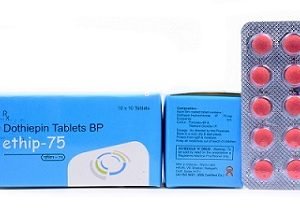Description
Glimepiride and Metformin Hydrochloride Tablets help control blood sugar levels in adults with Type 2 Diabetes. It is a combination of antidiabetic medications, namely Glimepiride and Metformin. Glimepiride belongs to a class of drugs known as sulfonylureas, which functions by increasing the insulin released by the pancreas. Metformin is a biguanide that lowers glucose production, delays glucose absorption, and enhances your body’s response to insulin. To sum up, these two medicines work by preventing blood sugar levels from rising. Thus, keeping your blood sugar levels under control.
This medicine contains Glimepiride, which increases the risk of dangerously low blood sugar levels. Hence, an individual patient should check blood sugar levels throughout the treatment. In addition, Glimepiride and Metformin Hydrochloride Tablets offer mild to moderate side effects. Do not worry about those symptoms. They will gradually resolve. However, if you notice any persistent problems or the common side effects start worsening, you may need to consult your healthcare provider as soon as possible.
Precautions for Glimepiride and Metformin Hydrochloride Tablets
In general, doctors prescribe this medicine once daily with the first meal of the day. Take this medicine as directed by the healthcare professional to achieve the best effects. You will be given a low dose at first. Then it will be increased after every 1 or 2 weeks, depending on your medical condition or blood sugar levels. It is unrecommended to increase or decrease the dosage on your own. For more deets regarding this medicine, you can read the patient leaflet.
Also, Consider Following These Guidelines:-
- Eat a healthy diet, exercise, and take your other diabetes medicines with Glimepiride and Metformin Hydrochloride Tablets for the best effects.
- You may experience hypoglycemia (a medical term when blood sugar levels drop below 55mg/dl) if you delay or miss a meal or drink alcoholic beverages when taking this medicine.
- Inform your healthcare provider if your body develops loss of appetite, abdominal pain, or yellowing of the eyes or skin (jaundice).
- As per official guidelines, the dosage of Glimepiride could be 8mg max., once daily. Take this medicine at the dose prescribed by your doctor. Neither increase nor decrease it on your own.
- Share the list of other medications you are currently taking, including prescription, non-prescription, herbal, etc. Some medicines may interact with Glimepiride and Metformin Hydrochloride Tablets.
Your doctor may check your liver functioning throughout the treatment. Also, you may need to monitor your blood sugar levels when taking this medicine. Inform your doctor if your blood sugar levels drop or rise substantially.
Possible Side effects
Unlike other medications, Glimepiride and Metformin Hydrochloride Tablets cause mild to moderate adverse reactions. Those side effects gradually resolve and don’t require any special medication attention. However, if they persist or worsen, inform your doctor as soon as possible.
Most Common Side effects:-
- Nausea
- Diarrhea
- Headache
- Dizziness
- Hypoglycemia
Note: This list doesn’t contain all the information regarding the side effects caused by this medication. For more information, consult your healthcare provider.
Frequently Asked Questions
Q. What are the uses of Glimepiride and Metformin Hydrochloride Tablets?
A. This medicine helps control blood sugar levels among adults with Type 2 diabetes. However, consult your doctor before commencing treatment.
Q. How do Glimepiride & Metformin work?
A. Glimepiride acts by increasing insulin production by the pancreas. On the other hand, Metformin lowers glucose production, delays glucose absorption, and enhances your body’s response to insulin.
Q. Do Glimepiride and Metformin Hydrochloride Tablets cause any side effects?
A. Yes, while using this medication, you may experience Hypoglycemia, Nausea, Diarrhea, Headache, Dizziness, Flatulence, etc. Those symptoms will gradually resolve over time.
Q. Can you drive while taking this medicine?
A. Glimepiride and Metformin Hydrochloride Tablets may cause hypoglycemia, whose symptoms include shivering, sleepiness, sweating, palpitations, etc. They may alter your ability to concentrate and use caution while driving or performing any hazardous activity.














